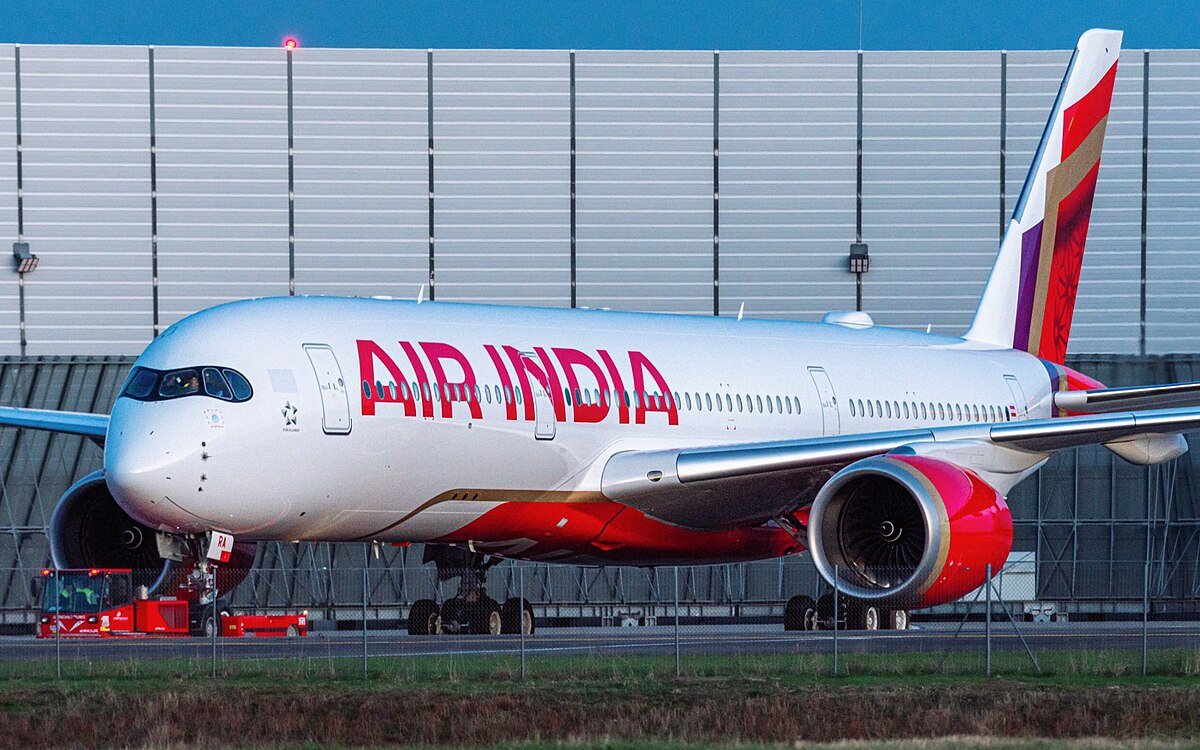Air India, the country’s leading airline, is reportedly in talks to secure a multi-billion-dollar deal for dozens of new widebody jets from aerospace giants Boeing and Airbus. According to industry sources, the airline’s latest expansion strategy is aimed at strengthening its international presence and modernizing its fleet as part of its transformation under the Tata Group’s ownership.
Ambitious Growth Plans Under Tata Group
Since being acquired by the Tata Group in 2022, Air India has embarked on an aggressive expansion plan to reassert itself as a dominant global airline. In 2023, the airline placed an unprecedented order for 470 aircraft from both Airbus and Boeing. This included a mix of narrow-body and widebody aircraft. Last year, Air India added another 100 Airbus jets to its order book, primarily consisting of single-aisle aircraft.
Now, the airline is setting its sights on expanding its widebody fleet, which is essential for long-haul international routes. Widebody jets, such as the Boeing 787 Dreamliner, Boeing 777X, and Airbus A350, are key to competing with global carriers that dominate lucrative long-haul markets. The latest deal could serve as a game-changer for Air India, allowing it to capture a larger share of the global aviation market and compete with rivals such as Emirates, Qatar Airways, and Singapore Airlines.
Air India’s Strategic Fleet Expansion
Air India’s move to acquire more widebody jets aligns with its strategic vision of revamping its long-haul operations. The airline currently operates Boeing 777s, 787s, and Airbus A350s for international routes. However, with growing passenger demand and increasing competition from foreign carriers, the airline needs a modern and efficient fleet to maintain and expand its market share.
According to industry experts, Air India is likely to split the new order between Boeing and Airbus, continuing its strategy of diversifying suppliers. The Boeing 787 Dreamliner and 777X, along with Airbus A350 variants, are strong contenders for the airline’s requirements. These aircraft offer improved fuel efficiency, increased passenger comfort, and enhanced operational flexibility, making them ideal for long-haul and ultra-long-haul routes.
Competitive Advantage in the International Market
Air India has faced significant challenges in recent years, including financial struggles, declining service standards, and strong competition from global and domestic carriers. However, the Tata Group’s acquisition and subsequent investments have sparked a turnaround.
A modern widebody fleet will allow Air India to provide a better passenger experience, improve operational efficiency, and expand its network to new international destinations. The airline is focusing on increasing non-stop flights to North America, Europe, and key Asian markets.
By acquiring the latest generation of widebody jets, Air India can optimize its network planning and offer competitive fares while ensuring better connectivity between India and global hubs. This expansion is also expected to improve cargo operations, contributing to increased revenue streams.
Industry Reaction and Market Implications
The aviation industry is closely monitoring Air India’s potential widebody order. If finalized, it will mark another significant milestone in the airline’s transformation. The order will also benefit Boeing and Airbus, both of which are witnessing strong demand for their aircraft amid a post-pandemic travel boom.
A large order from Air India could also influence market dynamics, prompting competitors such as IndiGo, Vistara, and international carriers to reassess their fleet expansion strategies. With the Indian aviation market growing rapidly, airlines are investing heavily in capacity expansion and service enhancement to capture a larger share of passenger traffic.
Awaiting Official Confirmation
Despite widespread industry speculation, Air India has not officially commented on the reports regarding its widebody jet negotiations. Similarly, both Boeing and Airbus have declined to comment on the matter. However, given Air India’s recent growth trajectory and its need for more widebody aircraft, experts believe that an official announcement could be imminent.
If the deal is confirmed, Air India’s expansion strategy will gain further momentum, positioning the airline as a major player in global aviation. The acquisition of modern, fuel-efficient widebody jets will not only enhance its operational capabilities but also reaffirm the Tata Group’s commitment to making Air India a world-class airline.

